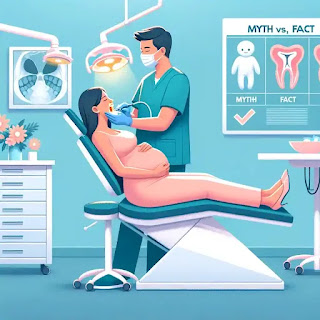Pregnancy and Dental Health: Debunking Myths About Dental X-Rays
Embracing Safe Dental Care During Pregnancy
Pregnancy brings heightened attention to healthcare, including dental well-being. Contrary to widespread myths, dental X-rays during pregnancy are both secure and vital for the comprehensive health of mother and child. On World Radiology Day, the spotlight is on the safety and importance of dental radiography for expectant mothers.
With advancements in technology, especially digital radiology, the already low radiation in dental X-rays has been significantly reduced. These quick, detailed images are indispensable for precise diagnoses and crucial for addressing conditions that could negatively impact both mother and fetus.
Dental professionals adhere to tailored safety protocols for pregnant patients, such as using lead aprons to shield the abdomen and reduce any conceivable risk. It is essential for patients to inform their dentist of their pregnancy, ensuring that special precautions are taken and preventive care is adapted to hormonal changes that may increase susceptibility to issues like cavities and gingivitis.
While routine X-rays may be deferred, those necessary for urgent dental issues or crucial treatment planning should be addressed. These X-rays, which complement the clinical examination, are key in assessing the extent of decay, the health of dental pulp, the bone structure surrounding teeth, and identifying anomalies like jaw cysts.
World Radiology Day celebrates the advent of X-rays and the radiologic advancements that have enhanced the safety and precision of dental diagnostics. The Nuclear Safety Council is instrumental in regulating radiological practices, certifying that dental clinics adhere to strict radiological safety standards.
In summary, not only are dental X-rays during pregnancy safe, but they are also a fundamental component of oral healthcare. Thanks to cutting-edge technology and stringent safety protocols, expectant mothers can confidently continue their dental maintenance, safeguarding their health and that of their unborn child.

